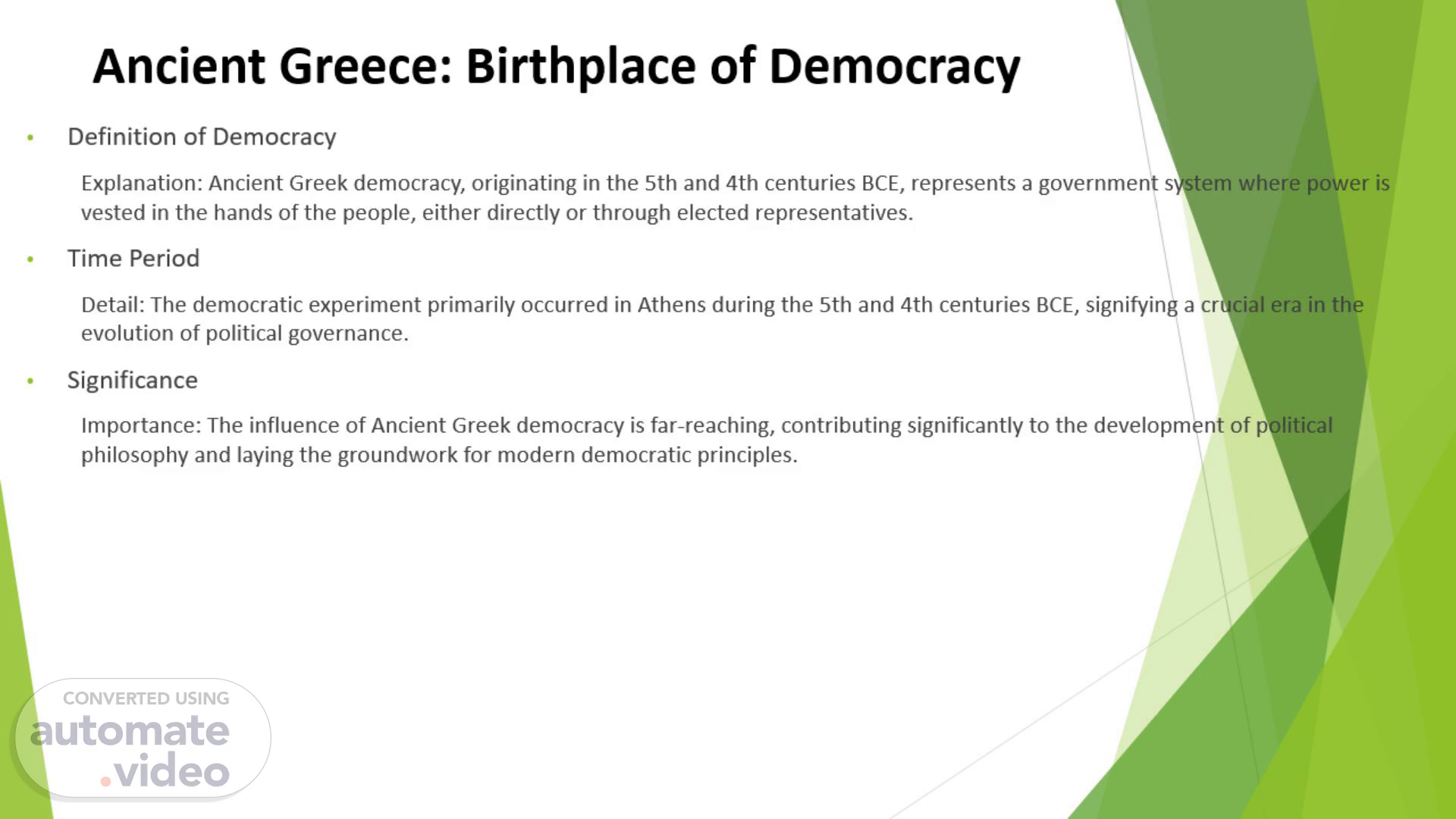
Ancient Greece: Birthplace of Democracy
Scene 1 (0s)
[Audio] Welcome to our exploration of Ancient Greece: the Birthplace of Democracy. In the 5th and 4th centuries BCE, the Greeks pioneered a revolutionary form of governance. Democracy, as we know it today, had its roots in this vibrant and intellectually rich era. This system, where power resided with the people, either directly or through elected representatives, laid the groundwork for modern political ideals..
Scene 2 (30s)
[Audio] To understand the birth of democracy, we must first delve into the geographical and cultural backdrop of Ancient Greece. The mountainous terrain and numerous islands led to the formation of independent city-states, among them, Athens and Sparta. Athens, a cultural hub, embraced democracy, while Sparta, known for its militaristic society, had a different political structure. Democracy emerged as a response to tyranny and oligarchic rule, reflecting a societal desire for increased citizen participation in governance..
Scene 3 (1m 6s)
[Audio] The pivotal figure in the development of Athenian democracy was Cleisthenes, whose reforms around 508 BCE set the stage for a groundbreaking political system. The heart of this democracy was the Assembly (Ekklesia), open to all male citizens. Here, decisions on legislation, policies, and key state matters were made. The Council of 500 (Boule) served as the executive branch, executing decisions proposed by the Assembly. The legal system featured citizen jurors, and the unique process of ostracism aimed to prevent potential threats..
Scene 4 (1m 46s)
[Audio] Ancient Greek democracy did not exist in isolation—it influenced Western political thought, spreading to other city-states and shaping the development of democratic institutions in Rome and beyond. However, it was not without its criticisms. Exclusivity (limited to male citizens) and vulnerability to demagoguery were notable challenges. Yet, the enduring legacy is undeniable. Parallels between Ancient Greek democratic principles and modern concepts, such as citizen participation, rule of law, and accountability, continue to resonate globally..
Scene 5 (2m 25s)
[Audio] In conclusion, Ancient Greece, especially Athens, remains the birthplace of democracy. Cleisthenes' reforms, the Athenian Assembly, and unique legal processes collectively defined this democratic experiment. The enduring legacy of Ancient Greek democracy is felt in contemporary political systems globally, with its influence on Western political thought and governance structures. I invite you to further explore this rich history and its impact on the democratic ideals we cherish today. Thank you for joining us in this journey through the annals of Ancient Greece: the birthplace of democracy..